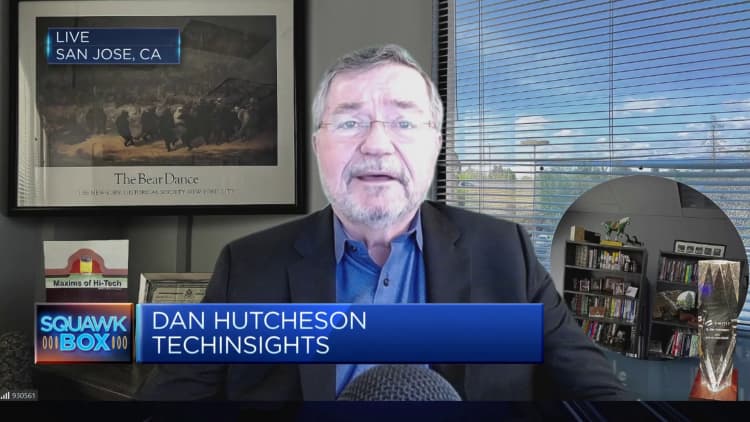Li Qiang, China’s premier, delivers a special address on the opening day of the World Economic Forum (WEF) in Davos, Switzerland, on Tuesday, Jan. 16, 2024.
Bloomberg | Bloomberg | Getty Images
Chinese Premier Li Qiang said that tech innovations should not be used as a way to restrict or contain other countries.
“To keep the competition healthy and bring out the greatest vitality, the only way is to enhance cooperation in innovation,” Li said via an official English translation of his Mandarin-language remarks made on Tuesday at the World Economic Forum in Davos, Switzerland.
“Scientific and technological fruits should benefit humanity as a whole, instead of becoming a means to restrict or contain the development of other countries,” Li added, calling for “more open measures.”
Li did not specifically name any countries in his remarks. Beijing has repeatedly asked Washington to remove restrictions on Chinese companies that prevent them from buying advanced technology from U.S. firms.
U.S. measures in the last two years have explicitly focused on cutting China off from high-end semiconductors used for artificial intelligence, out of concern that the tech is fueling the military capabilities of Beijing.

Following his speech, Li spoke about the risks and opportunities of generative AI, such as ChatGPT, in a brief question-and-answer session with World Economic Forum Founder Klaus Schwab.
“To put plainly, we human beings must control the machines instead of having the machines control us,” Li said, calling for a universal “red line in AI development” without specifying details.
He added that AI shouldn’t just benefit a small group of people, and that the interests of developing countries should be prioritized.
U.S.-based OpenAI’s ChatGPT surged in popularity just over a year ago, but isn’t officially available in China. Many similar chatbots from Chinese companies, such as Baidu and Alibaba, launched to the public in mainland China, after getting the green light from authorities in August.
”In AI, we are doing a lot of work to roll out policies and regulations,” Li said. “We introduced many laws and regulations to ensure the data security, AI-related ethics and generative AI services. All these are efforts to explore an AI governance framework suited to China’s national conditions.”
Global cooperation
Li on Tuesday cast China as a supporter of multilateralism and called for further global cooperation.
In his speech to global business leaders, Li emphasized that China would take steps to address concerns about the flow of data across international borders and the ability to participate equally in government procurement.
Foreign businesses operating in China have found it difficult to comply with the country’s tightened restrictions on data collection and export, also complaining that domestic businesses have unfair advantages when competing for local government bids.
“China remains firmly committed to opening up,” Li said. “We will continue to create favorable conditions for the world to share in China’s opportunities.”
Li met with Swiss President Viola Amherd ahead of the Davos conference and is set to visit Ireland later in the week.
China on Monday announced it will give Swiss citizens visa-free entry, while the Swiss side will “provide more visa facilitation” for Chinese citizens and businesses investing in Switzerland. It is not clear when the measures will take effect.
China’s economic growth
Li separately said in his speech of Tuesday that the Chinese economy grew by around 5.2% in 2023. His comments come a day ahead of the National Bureau of Statistics’ scheduled release of official GDP figures and other data, set for Wednesday in Beijing.
“In promoting economic development, we did not resort to massive stimulus. We did not seek short-term growth while accumulating long-term risks,” Li said. “Rather, we focused on strengthening the internal drivers.”
Chinese President Xi Jinping is skipping Davos this year. His U.S. counterpart Joe Biden has likewise not attended event since he became president.
Xi earlier on Tuesday called for increasing the connections between domestic and overseas financial markets, while ensuring financial security, according to state media outlet Xinhua.
The Chinese leader was giving a speech about the “high-quality development of China’s financial sector” at a school for Chinese Communist Party officials, also known as the National Academy of Governance.
— CNBC’s Jenni Reid contributed to this report.

